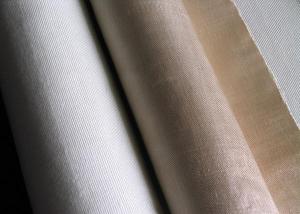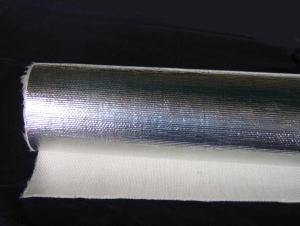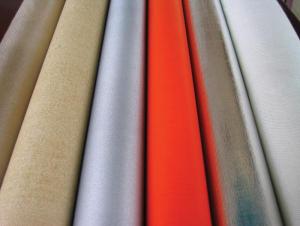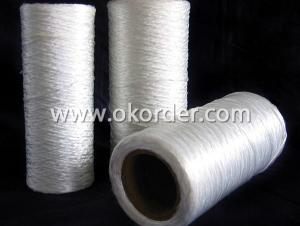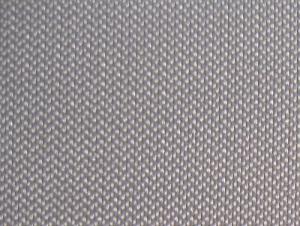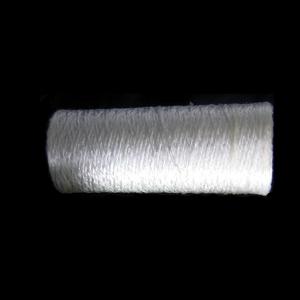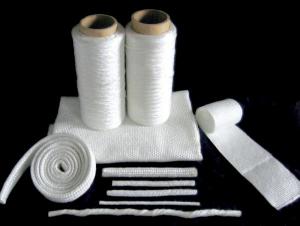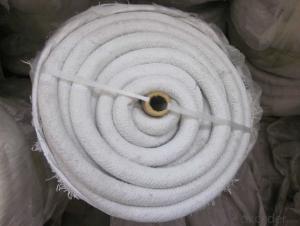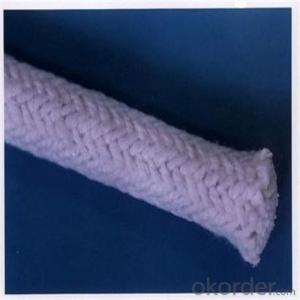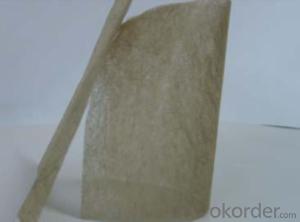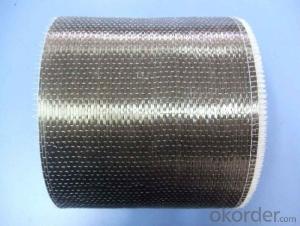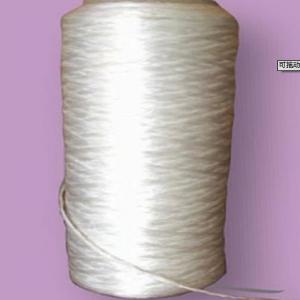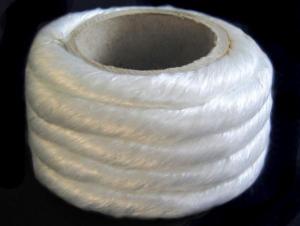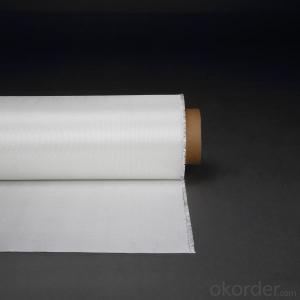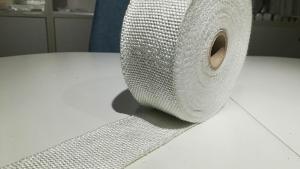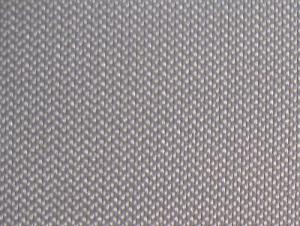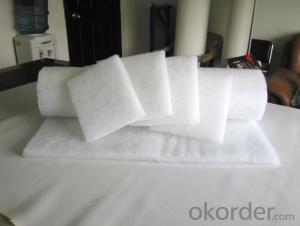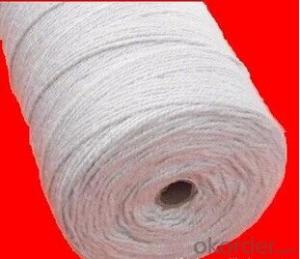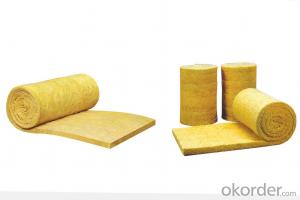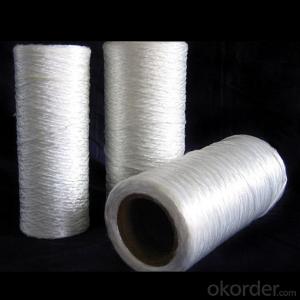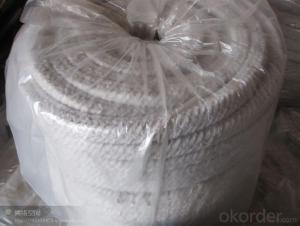Textured Fiberglass Cloth
- Loading Port:
- China Main Port
- Payment Terms:
- TT or L/C
- Min Order Qty:
- 10 tons kg
- Supply Capability:
- 20*20FCL Per Month kg/month
OKorder Service Pledge
OKorder Financial Service
You Might Also Like
Specifications of Textured Fiberglass Cloth
1. Texturized fiberglass cloth 2. High temperature resistance 3. Fireproof 4. Thermal insulation
Texturized Fiberglass Cloth Description:
2. Insulating properties depend upon conductivity and radiation and these are influenced by the fabric construction.
3. It is the ideal substitue of the asbestos cloth.
4. It can resist 450-550C.
Texturized Fiberglass Cloth Application:
1. All types of thermal insulation and heat protection.
2. Welding blankets and fire curtains.
3. Expansion joints.
4. Basic cloth for coatings and laminations.
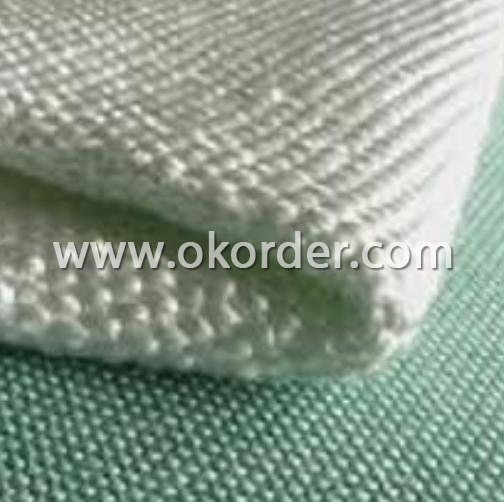
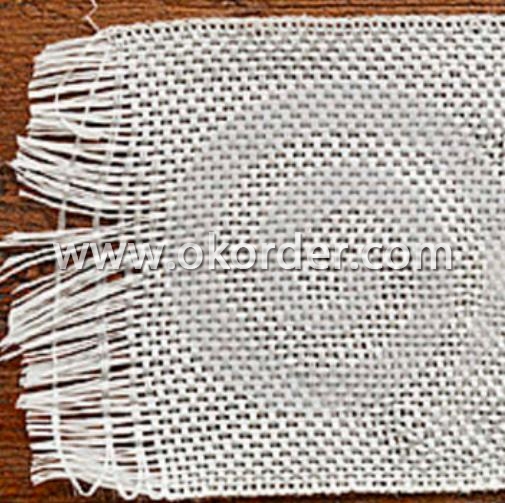
- Q:Can glass fiber textiles be used in reinforcement of wood fibers?
- Glass fiber textiles have the potential to reinforce wood fibers. Known as glass fiber fabrics or glass fiber mats, these textiles are commonly utilized as reinforcement in composite materials due to their strength and stiffness. By applying them to wood fibers, the mechanical properties and performance of the wood material can be enhanced. The inclusion of glass fibers increases the overall strength, durability, and dimensional stability of the wood fibers, making them more resistant to cracking, warping, and other forms of damage. This combination of wood and glass fibers creates a composite material with an improved strength-to-weight ratio and increased structural integrity. Furthermore, the glass fibers also offer thermal insulation properties to the wood fibers. All in all, incorporating glass fiber textiles into wood fibers is a viable option for improving the properties and performance of wood-based materials.
- Q:Are glass fiber textiles water-resistant?
- Yes, glass fiber textiles are water-resistant. The glass fibers used in these textiles are naturally hydrophobic, meaning they repel water. This property makes them highly resistant to water absorption, making them an excellent choice for applications that require protection from moisture. Additionally, glass fiber textiles can also be further treated with water-repellent coatings or finishes to enhance their water-resistant properties. However, it is important to note that while glass fiber textiles are water-resistant, they may not be completely waterproof. In extremely wet conditions or prolonged exposure to water, some water may eventually penetrate the fabric.
- Q:What is the thickness of glass fiber textile?
- The specific application and manufacturing process can cause variations in the thickness of glass fiber textile. Typically, glass fiber textiles come in various thicknesses, ranging from 0.1 mm to 1.5 mm. However, it's crucial to acknowledge that these values are approximations and may differ depending on factors like the type of glass fiber, weaving pattern, and intended textile use.
- Q:Can glass fiber textiles be used in insulation for pipes or ducts?
- Yes, glass fiber textiles can be used in insulation for pipes or ducts. Glass fiber textiles, such as glass wool or fiberglass, are commonly used as insulation materials due to their excellent thermal and acoustic insulation properties. They are widely used in various applications, including insulating pipes and ducts in residential, commercial, and industrial settings. Glass fiber textiles are known for their high resistance to heat transfer, making them highly effective in reducing energy loss and maintaining temperature control in pipes and ducts. Additionally, glass fiber textiles are lightweight, flexible, and easy to install, making them a popular choice for insulation purposes.
- Q:Are glass fiber textiles resistant to thermal conductivity?
- Yes, glass fiber textiles are highly resistant to thermal conductivity.
- Q:Are glass fiber textiles suitable for automotive interiors?
- Yes, glass fiber textiles are suitable for automotive interiors. They are known for their strength, durability, and resistance to heat, making them ideal for use in car interiors. Glass fiber textiles can be used for various purposes such as seat covers, carpeting, headliners, and door panels, providing excellent insulation and enhancing the overall aesthetics of automotive interiors.
- Q:Can glass fiber textiles be used in reinforcement of silk fibers?
- No, glass fiber textiles cannot be used in the reinforcement of silk fibers. Silk is a natural protein-based fiber, while glass fiber textiles are made from inorganic materials such as silica. The properties and behaviors of these two materials are vastly different, making it unsuitable for them to be used together in reinforcement.
- Q:How does moisture affect glass fiber textiles?
- Glass fiber textiles can be affected by moisture in both positive and negative ways. On the positive side, moisture can enhance the flexibility and pliability of the textiles, making them easier to handle and more comfortable to wear. Furthermore, it can improve the thermal insulation properties of glass fiber textiles, thus increasing their effectiveness in retaining heat. This is especially advantageous in cold or wet conditions. Nevertheless, the prolonged exposure to moisture can also prove harmful to glass fiber textiles. It can promote the growth of mold and mildew, which can compromise the integrity of the textiles and reduce their lifespan. Additionally, it can weaken the glass fibers, causing them to become less durable over time. Moreover, moisture can add weight to the textiles, leading to discomfort when worn and potentially reducing their breathability. To counteract the negative effects of moisture on glass fiber textiles, it is vital to properly care for and maintain them. This may involve regular cleaning and drying to prevent the growth of mold and mildew. Additionally, applying water-repellent coatings to the textiles can minimize moisture absorption and safeguard against damage. Overall, while moisture can provide certain benefits for glass fiber textiles, it is essential to strike a balance to ensure their longevity and performance.
- Q:How does glass fiber textile perform in terms of electrical conductivity?
- Glass fiber textile is not conductive, meaning it does not allow the flow of electricity. It is an insulating material, making it suitable for applications where electrical conductivity is not desired or can pose a risk.
- Q:Can glass fiber textiles be used for making curtains or blinds?
- Indeed, curtains or blinds can be crafted using glass fiber textiles. These textiles possess remarkable durability and outstanding resistance to heat and fire, rendering them fitting for such applications. They proficiently obstruct sunlight and ensure privacy, all while bestowing the advantages of insulation. Moreover, glass fiber textiles exhibit resistance against moisture, mold, and mildew, thus proving to be an ideal selection for locales with elevated humidity levels. In summary, glass fiber textiles present a pragmatic and fashionable alternative for curtains or blinds in both residential and commercial environments.
1. Manufacturer Overview |
|
|---|---|
| Location | Beijing, China |
| Year Established | 1992 |
| Annual Output Value | Above US$ 3 Million |
| Main Markets | North America;Southeast Asia ;Western Europe ;Middle East |
| Company Certifications | ISO 9001:2008 |
2. Manufacturer Certificates |
|
|---|---|
| a) Certification Name | |
| Range | |
| Reference | |
| Validity Period | |
3. Manufacturer Capability |
|
|---|---|
| a)Trade Capacity | |
| Nearest Port | Tianjing |
| Export Percentage | 60% - 70% |
| No.of Employees in Trade Department | 21-50 People |
| Language Spoken: | English; Chinese |
| b)Factory Information | |
| Factory Size: | Above 10,000 square meters |
| No. of Production Lines | Above 8 |
| Contract Manufacturing | |
| Product Price Range | High; Average |
Send your message to us
Textured Fiberglass Cloth
- Loading Port:
- China Main Port
- Payment Terms:
- TT or L/C
- Min Order Qty:
- 10 tons kg
- Supply Capability:
- 20*20FCL Per Month kg/month
OKorder Service Pledge
OKorder Financial Service
Similar products
New products
Hot products
Hot Searches
Related keywords
